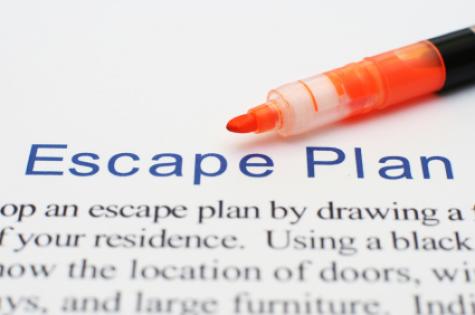As bushfires continue to burn around Australia, families in high-risk areas are considering their survival plans – but what role should children play in the planning process?
How much information should parents share with their children about their plan? And what can parents do if children become anxious about bushfire hazards and disasters this bushfire season?
Research by Dr Briony Towers, a Post-Doctoral Research Fellow in RMIT University’s Centre for Risk and Community Safety, shows involving children in the planning process could be vital for their survival in a disaster.
Dr Towers interviewed 140 children aged 5-12 years living in high bushfire-risk areas in Tasmania and Victoria as part of research conducted with the Bushfire Co-operative Research Centre (CRC).
“These children generally understood a bushfire could happen in their area but they knew very little about how to protect themselves or their homes,” she said.
“The study showed that when children were given the chance to discuss bushfire mitigation and planning with more knowledgeable peers or adults, they were more than capable of understanding the fundamental principles of safety and survival.
“In addition, when children had a clear understanding of the steps that could be taken to prevent or reduce bushfire impacts, they were less fearful and anxious about living in a high bushfire-risk area.
“Parents should talk to their children about fire safety and involve them in their bushfire survival plans – in a serious event, that knowledge could be crucial.”
The study found the most common misconceptions among children included:
Bushfires only travel along the ground and can be stopped by roads, rivers or creeks, swimming pools and brick walls
- If you stay to defend, you should evacuate when the fire front gets to the house
- If you evacuate, you should pack your valuables and then wait until the fire reaches your property
- If there is a bushfire coming, you should run to the letterbox
- It is possible to outrun a bushfire on foot
- The fire service or the police will you when it’s time to leave
- It will be hot, so you should wear bathers or shorts and a t-shirt
Check out the tips and advice on managing heat, including preparing for bushfires, here.


















__small.png)










